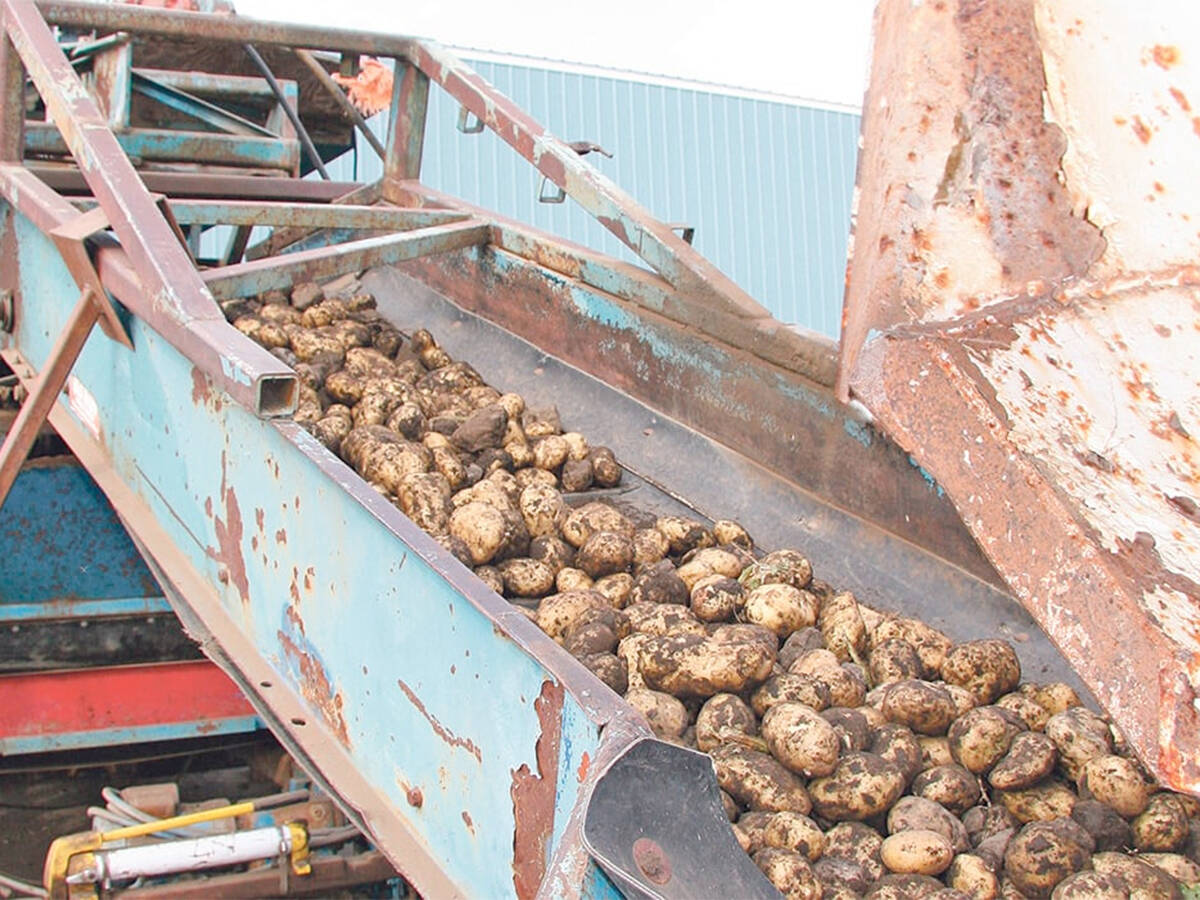While offering no details, Transport Minister Marc Garneau says seven key issues for the grain sector will be included in a bill on rail service to be introduced in Parliament this spring.
In a letter to the Commons transport committee, Garneau said, “I look forward to presenting this legislation, which will support a more transparent, balanced, safe, and efficient freight rail system, for the benefit of all users.” The bill will “advance a long-term agenda for a more transparent, balanced, and efficient rail system that reliably moves our goods to global markets.”
Read Also

Potato growers beware new PVY strains
Newer strains of potato virus Y (PVY) are creating headaches for potato farms in Eastern Canada, and Manitoba farmers should pay attention
The bill will reflect discussions with shippers and carriers and recommendations in a report released by the committee last year, he said.
“We all agree on the importance of an effective and efficient rail transportation system for the health of our economy, including the grain sector,” Garneau wrote.
Parliament is on recess until May 1. Garneau will have to act quickly after that to get the bill through the Commons and the Senate before the summer recess in mid-June.
Among the issues to be covered in the bill will be:
- The future of the 160-kilometre extended interswitching limit in the Prairie provinces;
- The requirement under the Canada Transportation Act to move minimum volumes of grain;
- Clarification of adequate and suitable service;
- Financial penalties in the context of service level agreements;
- The future of the maximum revenue entitlement;
- Shippers’ recourse to dispute resolution processes; and
- Access to market data.
“In addition, the legislative package will propose other complementary measures for strengthening the freight rail policy framework,” Garneau said.
The committee proposed 17 recommendations for the bill, which is needed to preserve the minimum volume requirement for the start of the 2017-18 crop year next August. The thrust of the report was to establish a power balance between the railways and shippers.
In the letter, Garneau said, “Canada has a world-class freight rail system, which directly supports our economic growth and trade agenda. Freight railways are critical links in many supply chains, including in the grain sector. Grain farmers and shippers depend on the freight rail system to get crops to market, allowing them to compete globally. The continued accessibility and efficiency of the freight rail system is therefore essential for the long-term strength and sustainability of Canada’s grain-handling and transportation system.”
The committee proposed an expanded role for the Canadian Transportation Agency in monitoring the performance of the railways. That included giving it the power “to issue temporary orders to respond to system-wide service issues.” The government should also ensure the full potential of producer cars can be achieved.
In his report on the state of Canadian transportation, former cabinet minister David Emerson called for an Integrated Data Platform and Multimodal Data Dashboard to facilitate transport collection and processing. Consideration should be given to housing this new entity with the Canadian Transportation Agency, he said.
In the budget, the government said it would create the Canadian Centre for Transportation Data (CCTD), with $50 million in funding over 11 years. Peter Frayne, a spokesman for Statistics Canada, said the CCTD would be a partnership between his department and Transport. It would not be set up as an independent body like the Grain Monitoring Program run by Quorum Corp.
“The proposed CCTD would be a partnership of Transport Canada, Statistics Canada and other parties to serve as an authoritative source of data and information on the transportation system in general,” Frayne said.
Transport and StatsCan “will work together with other stakeholders in the transportation sector to establish a comprehensive, authoritative source of multimodal transportation data and performance measures,” he said. “Other participants would include other levels of government, other federal government departments, industry, educational institutions and others with expertise or data to share in the area of transportation.”
The goal would be to provide “high-quality, timely and accessible data and analysis to support innovations that will move goods more efficiently across supply and distribution chains, getting them from the manufacturer and into the hands of consumers more quickly, affordably and sustainably,” he said. It would have an open data portal. “As is the case today, data would not be released publicly if it is protected under statute.”














